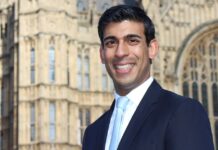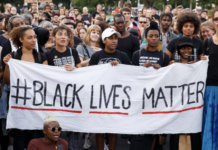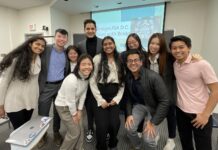![]()
Political division.
It frays the fabric of American democracy. Even the most basic discussions are impossible at best and violent at worst. The country is at an existential crossroads. These statements are quite dramatic, but are they true? At an event hosted by the Georgetown chapter of BridgeUSA on Feb. 17, panelists were not convinced.
Just after 3 p.m. in a small classroom in the Intercultural Center, three panelists took their seats in the front of the room: Alyssa Hirai (SFS ’24), Vice President of the Georgetown University Student Association (GUSA), Aryaman Sharma (SFS ’24), GU Politics student strategy team lead for Michael Ricci and Manu Meel, Chief Executive Officer of BridgeUSA, a national non-profit organization focused on promoting open political dialogue. The topic? Political polarization at Georgetown.
Meel, a self-described social entrepreneur recognized on Forbes’ “30 Under 30” list, quickly set the tone for the afternoon. “I actually don’t think we are that polarized,” Meel said. “We do not have polarization of the masses—we have polarization of the extremes.”
The rest of the event expressed a similar tone—hope. This sentiment seems incredulous considering students are constantly bombarded with stories of political violence and division. Georgetown students may recall Vice President Mike Pence’s visit in October or the recent Cardinal O’Connor Conference, which brought Georgetown’s political divisions to the fore. Despite these pressures, the outlook seemed bright.
But how can one be optimistic in today’s political environment?
Sharma argued that passionate students tend to be more vocal about their political views, but their views are not representative of all of Georgetown. Specifically, he expressed concern about a persistent problem at Georgetown—slacktivism.
“It’s a new form of activism where, as opposed to going to protest somewhere physically, more digitally at the palm of your hand, you can just reshare something,” Sharma said. As a result, Sharma claimed that polarization appears more extreme in digital spaces.
For Hirai, a conservative, the issue was personal. During the panel, she shared her story as a victim of “unfair” attacks written in campus publications and social media posts during her recent GUSA campaign. However, Hirai is optimistic about the future of dialogue at Georgetown because many of her peers supported her during the attacks: “So many people personally reached out to me in support, including my liberal friends who didn’t know I was conservative until the articles were published,” Hirai said.
Meel, after listening to the other panelists, recollected some of his experiences with students around the country. He highlighted a comment one student made: “I just want a country that respects me.”
“We think that ideas and words themselves cause real harm,” Meel added. “We need a temperament that accommodates difference.”
After the event, Sam Li (SFS/MSB ’24), president of Georgetown’s BridgeUSA chapter, explained why the club hosts these events.
“I think events like yesterday are not geared towards just improving the political environment on campus because BridgeUSA is trying to improve the overall communication and dialogue culture on campus, which transcends politics. It provides a space for students who want to learn from, argue with, question ideas, and engage with others on these crucial topics,” Li said. “Bridge is not a moderate, or centrist club. We do not force compromise or consensus. Instead, we try to foster ‘productive disagreement’ where even when students disagree, they can do so in a way that is healthy instead of toxic.”
Kristen Xiao (SFS ’25), Vice President of the Georgetown chapter of BridgeUSA, echoed Li’s sentiments about the club’s overall goals. “I agree with Sam that our scope is beyond politics—it’s more about simply how you talk to people who disagree with you,” Xiao said. “The point of Bridge is not to debate [or] convince, but to learn and listen.”
Disclaimer: Alyssa Hirai is a senior advisor to The Georgetown Review. She is quoted in her official capacity as Vice President of GUSA. She did not write, edit or play any role in the creation of this article.











